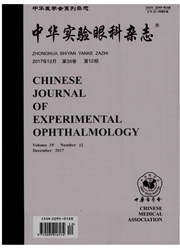

 中文摘要:
中文摘要:
蛋白激酶C-γ是经典型蛋白激酶C家族中的一个亚型。作为蛋白激酶C家族中的一员,它具有蛋白激酶C的普遍作用,同时又具有其特异作用。在磷脂酰丝氨酸存在的情况下,蛋白激酶C-γ可被Ca(2+)、磷脂酰甘油等激活。蛋白激酶C-γ具有神经特异性,主要在大脑皮层和脊髓的神经元中表达。cPKC-γ的缺失或突变是导致许多神经系统疾病的原因之一,可诱发原发性视网膜色素变性、白内障和脊髓小脑共济失调等疾病。异常视觉经验可通过神经发育可塑性影响视皮层发育最终导致弱视产生,作为一种神经特异性蛋白激酶,c PKC-γ是否在视觉发育可塑性中发挥作用,仍存在争议。本文中笔者主要从cPKC-γ的生物化学性质、分子作用机制和与其相关的疾病方面进行综述。
 英文摘要:
英文摘要:
Protein kinase C gamma(cPKC-γ) is a subtype of conventional PKC family. As a member of protein kinase C,it has common effects of protein kinase C,and special effect of itself. In the presence of phosphatidylserine,it can be activated by Ca2+ and phosphatidyl glycerol (DAG). cPKC-γ has neuron specificity, mainly in brain and spinal cord. Its absence or mutation will cause many nervous system diseases, such as retinitis pigmentosa(RP) , cataract and spinocerebellar ataxia. Abnormal visual experience can lead to amblyopia by affect neuroplasticity of visual cortex. As a neuron-specific protein kinase, its role in visual plasticity is still controversial. This article summarizes the biochemical properties, molecular mechanism and related diseases of ePKC-γ.
 同期刊论文项目
同期刊论文项目
 同项目期刊论文
同项目期刊论文
 期刊信息
期刊信息
